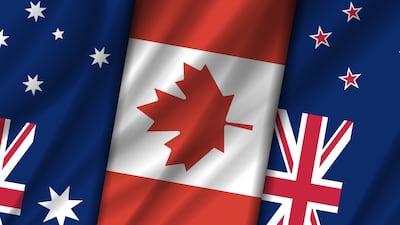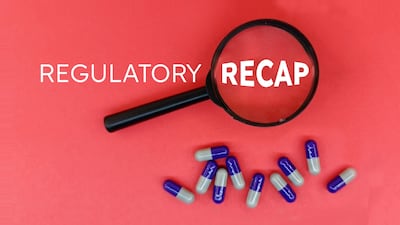Canada
Country
Sandoz’s aflibercept biosimilar Enzeevu launch in Canada comes just a few days after the firm signed a multiple asset deal, including an undisclosed ophthalmology product, with Alvotech, which recently gained immediate launch for its Eylea rival in the country.
Sandoz and Alvotech have struck a deal that will see the firms collaborate on multiple biosimilar candidates for the Australian, Canadian and New Zealand markets across therapeutic areas including ophthalmology, immunology and gastroenterology.
Alvotech has ticked off all of the remaining patent-related matters for its aflibercept biosimilar, with multiple market entries expected in 2026.
Dr Reddy’s gears for semaglutide debut across markets, including India and Canada, where Novo Nordisk has second brands of the GLP-1 agonist potentially ready. Can the Indian group close out compliance queries from the Canadian regulator soon?
Generics Bulletin reviews global regulatory developments across the world.
Dr Reddy’s gears for semaglutide debut across markets, including India and Canada, where Novo Nordisk has second brands of the GLP-1 agonist potentially ready. Can the Indian group close out compliance queries from the Canadian regulator soon?
Generics Bulletin reviews global regulatory developments across the world.
Formycon has again stepped closer to financial certainty with another pembrolizumab biosimilar deal. This time, it unlocked a significant opportunity for the US and Canadian markets.
Korean firm’s Eydenzelt biosimilar win full label alignment with Eylea, including all approved ophthalmic indications.
Generics Bulletin reviews global regulatory developments across the world.
Dr Reddy's had not ruled out "queries" from the Canadian regulator for generic semaglutide, though it is confident of selling “all its capacity” for the GLP-1 across target markets. A backup CMO site in the US for abatacept is expected to mitigate risks amid tariff and other uncertainties.
Dr. Reddy's doesn’t fully rule out "queries" from the Canadian regulator for generic semaglutide, though it is confident of selling “all its capacity” for the GLP-1 across target markets. A backup CMO site in the US for abatacept is expected to mitigate risks amid tariff and other uncertainties.









